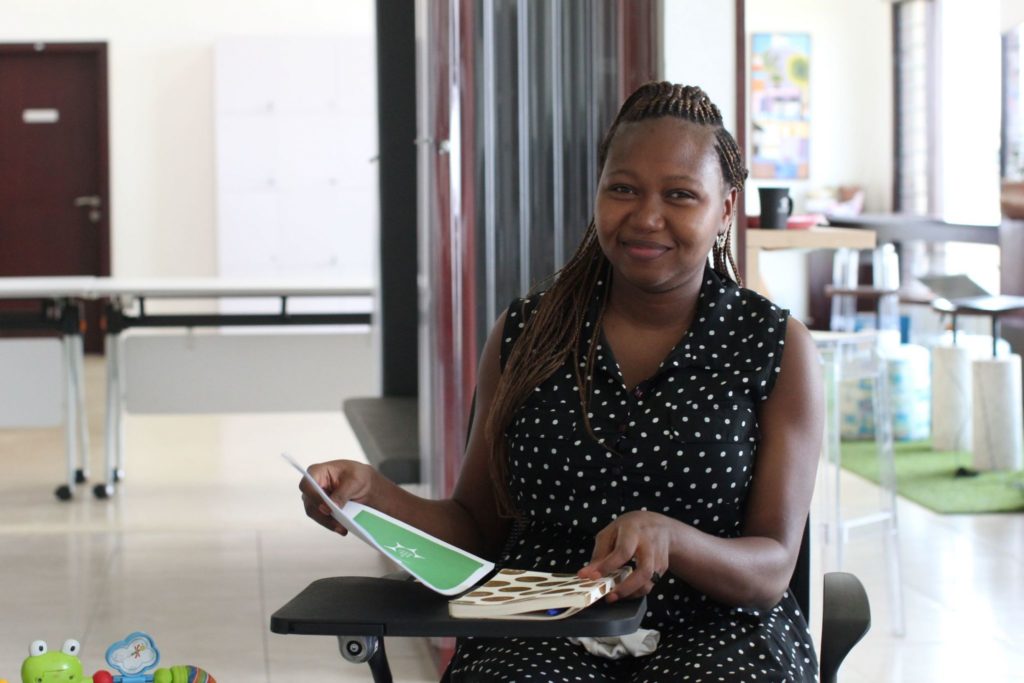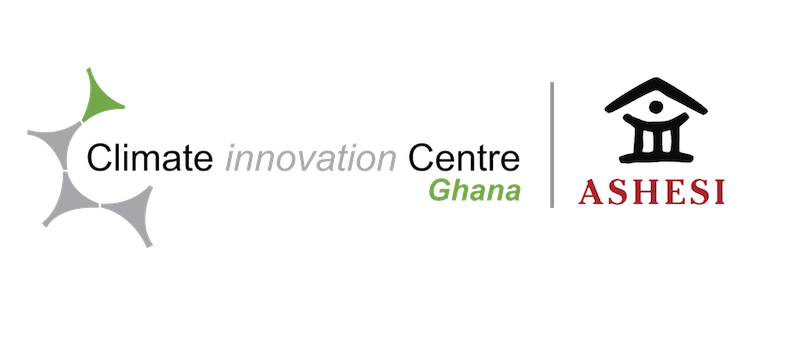“Our greatest glory is not in never falling, but in rising every time we fall.” -Confucius. We need to fail and learn how to recover from failure, to progress. The topic of “overcoming challenge and failure” was one of the areas explored during the Women Entrepreneurs Transformation Programme (WETP), a programme of the Ghana Climate Innovation Centre designed to support the Centre’s women entrepreneurs to start, operate and grow their business with unusual intent – and to become extraordinary business leaders.
Many of us are afraid of making mistakes, afraid of failing. What’s more, the leadership style we have learned to operate in, is often a “dictatorial” one, where we are doing what we are being told, and which is an outdated approach. A progressive leadership style, though, inspires to develop and cultivate innovative thinking and entrepreneurial practices. Such innovative leaders are aware that they can’t know everything, and that they can build a team of excellent people around them that support each other.
It is key to take on a different perspective on challenges and failures and accept them for what they are: opportunities for growth.
The topic of “overcoming challenge and failure” was the logical next step in the curriculum of the WETP – following work on “mindset and perspectives”. We encouraged the participants to “get messy”, to “play with” and embrace failure, to drop perfectionism and the idea of getting it right – and see what happens then.
There are many reasons for fear to arise when things go wrong. It can stem from perfectionist tendencies. Perfectionism can prevent us from being creative, and therefore from finding innovative solutions to our challenges.
In the process of adopting a new perspective on how we deal with challenges and failures, we must leave our comfort zone – our “known world”. We need to expand the way we do things to expand our realm of impact.
“If you do what you have always done, you will get what you’ve always gotten. If we want to evoke change, we need to expand our comfort zones,” explained Rachel Allan, leadership coach sourced by GCIC to facilitate the WETP.
So, what can hold us back from leaving our comfort zone? Our so called “inner gremlins”-voices that challenge us and tell us we are “wrong” or “not good enough”. We are worried about what others think, and try to please them, while forgetting about our own ideas.
The book “Rising Strong” by Brene Brown and her talk “Super Soul Sunday: Rising Strong and Overcoming Failure”, the recommended reading and video by coach Rachel, was to help understand better which stories we are “making up” – which explanations or excuses we find – to stay in the known. Brown’s approach also outlines a clear process of recovery from failure.
In her article “Giving Excuses” Madisyn Taylor suggests that “too often we accept our excuses as reasons why we cannot accomplish what we set out to do, and instead of finding alternatives we give up. But if we can be honest with ourselves and take responsibility for our choices, we will notice that we no longer give excuses. When we keep our minds focused on our goals, we will find that excuses fade away in the light of our priorities, and issues become challenges that can help us become wiser and stronger.”
So, the challenge for our eight women entrepreneurs was to step out of their comfort zone, take bold action and be courageous – to break patterns that they had identified as holding them back.
“Vulnerability is not winning or losing; it’s having the courage to show up and be seen when we have no control over the outcome. Vulnerability is not weakness; it’s our greatest measure of courage, essential for all leaders,” says Brene Brown in “Rising Strong”.
Priscilla Morny, one of the WETP participants, summarizes her learning: “I am able and capable when I have the right mindset. Failures and challenges are a part of the journey towards my objective. The stories I tell myself will shape my resolve; doubt would only give me a wrong story. My greatest enemy is a wrong mindset. Courage comes from self-compassion: I am only human. If I fail, it is because I took a step. ‘Dare to be brave’. That’s what’s important.”
Priscilla is a business management professional. She believes companies are successful when its people and teams are empowered to achieve, hence her area of expertise is HR management. She currently works with Moringa Connect Company Limited where her key objective is to create an atmosphere where people can succeed and thrive.
 “By taking personal responsibility for how we choose to think and the actions we choose to take, we actively shape our future the way we want it to be. That includes your business, your relationships – your entire world,” explains Rachel, reiterating how everything is connected, and reminding how important it therefore is to find our inner leader: “I firmly believe that leadership starts within and the only way to evoke positive transformation at home and at work, in our communities and in the world, is to start there: within. Our inner leadership directly influences our outer impact.”
“By taking personal responsibility for how we choose to think and the actions we choose to take, we actively shape our future the way we want it to be. That includes your business, your relationships – your entire world,” explains Rachel, reiterating how everything is connected, and reminding how important it therefore is to find our inner leader: “I firmly believe that leadership starts within and the only way to evoke positive transformation at home and at work, in our communities and in the world, is to start there: within. Our inner leadership directly influences our outer impact.”
What unites the female leaders on the WETP is their passion for environmental issues and the ambition to make this world a better place through how they lead their businesses. The discovery of how to turn challenges into opportunities was key for them on their journey of realizing the impact they wish to have.
The Ghana Climate Innovation Centre (GCIC) is a pioneering business incubator whose objective is to support entrepreneurs and ventures involved in developing profitable and locally appropriate solutions to climate change mitigation and adaptation in Ghana. The Centre’s key focus is on building businesses operating within the areas of energy efficiency, domestic waste management, solar energy, water supply management and purification and climate-smart agriculture. GCIC is part of the World Bank Group’s infoDev Climate Technology Program. Supported by the governments of Denmark and the Netherlands, the Centre is managed by a consortium led by the Ashesi University College and including Ernst & Young, SNV Ghana, and the United Nations University Institute for Natural Resources in Africa.
The GCIC Women Entrepreneurs’ Transformation Programme (WETP) is one of the mentoring and coaching programmes created by the GCIC on the belief that inner leadership creates outer impact, and aims to unleash the untapped potential of female entrepreneurs. The 2018 programme is created in partnership with leadership transformation facilitator and coach Rachel Allan.

